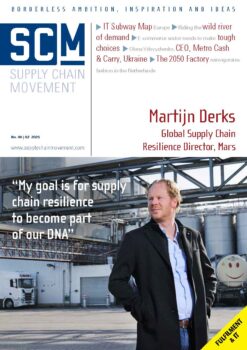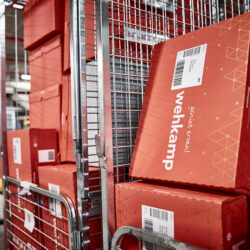E-commerce sector urgently needs to make tough choices

Online sales are declining, while logistics costs are rising rapidly. This is clearly putting pressure on e-commerce companies, who are responding by increasing their delivery and returns charges. Is this just the anticipated market correction following the ‘Covid effect’, or does it mark the dawn of a new era of some tough choices for everyone? “The truth is that the online channel is still not really profitable.”
On 24 April, Dutch online retailer Wehkamp started charging customers 50 cents for each item they return. The former mail-order company hopes this will encourage a change in behaviour and reduce the number of returns. Other measures, such as better photos or helping customers to select the right size, did not help, and the distribution centre in Zwolle continued to receive 50,000 returned items every day – requiring a team of 150 people to inspect, sort and process them.
In regional newspaper De Stentor, CEO Graham Harris is quoted as saying that charging a return fee was the only remaining option, “even though it nowhere near covers the cost of the returns process”. The current fee may be increased if it does not have the desired impact on consumer behaviour. “We are first going to observe the effects for at least a few months,” Graham states. He expects many others to soon follow suit: “I have spoken to a lot of CEOs. Many companies are planning to do a similar thing, including large corporations.”
Wehkamp is not the only retailer that has started charging return fees. An online retailer of computers and electronics called Alternate recently started charging €5.95 per return. It makes sense for retailers to adjust their returns policies, according to Mark Helder. As a director of consulting firm Simon Kucher, he supports retailers in terms with sales growth and pricing policies. “Every return generates logistics activities. A retailer can easily justify charging money for that, even if it isn’t enough to cover the total logistics costs. But more importantly, once they discover that returns are no longer free, it’s possible that consumers will become more aware of their purchasing behaviour. … … …
Want to read more?
 Get your digital subscription of Supply Chain Movement Q2, 2023 now! >>
Get your digital subscription of Supply Chain Movement Q2, 2023 now! >>









